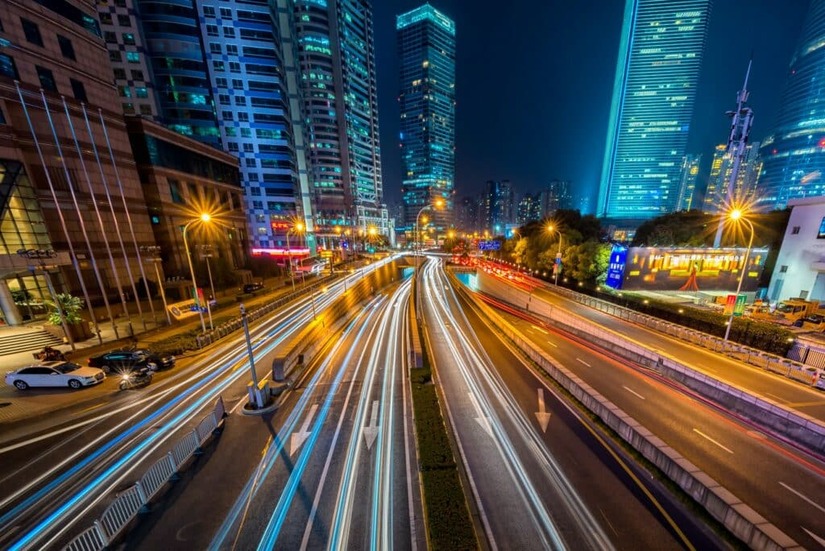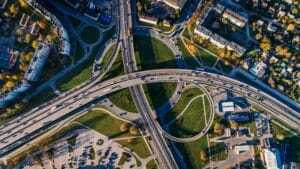Should you live and invest in a smart city?
If you are looking to invest as an expat or high-net-worth individual, which is what I specialize in, you can email me (advice@adamfayed.com) or WhatsApp (+44-7393-450-837).
Smart Cities
Smart cities are the future. The smartest cities in the world will have a big impact on jobs, and they can help manage traffic congestion while also providing more opportunities for businesses.
The most successful smart cities have open data platforms and use new technologies to manage their resources efficiently.
A smart city can be a wonderful option if you’re an expat who wishes to move to a place with a good quality of life, is well-designed for public usage and transportation, has plenty of employment prospects, and has a variety of accessible amenities enabled by technology.
In this article, we will discuss why the smartest cities in the world could be good places for you to consider moving to and investing in.

What is a smart city?
Smart cities are all about maximizing efficiency, connectivity, and convenience through technological advancements and data-driven policy decisions.
Smart city technology can be expensive to implement at first, but it’s worth the investment if you want your city to grow stronger over time. The world is increasingly connected these days—and that makes smart cities more valuable than ever before.
Globally, the smartest cities have achieved significant progress with their smart city programs and the adoption of cutting-edge smart technologies to improve the sustainability, energy efficiency, and carbon emissions of their own cities.
By 2050, the United Nations projects that 70% of the world’s population will reside in cities and metropolitan areas, which will result in an increase in emissions and energy consumption each year.
Buildings with great energy efficiency, environmentally friendly water disposal systems, and better urban transportation networks are more important than ever.
Programs and initiatives for smart cities are useful in this situation. Integrating smart technology, such as the Internet of Things (IOT)—items with integrated sensors for data exchange—in urban communities enhances both the general public’s safety and the quality of life for its residents.
The worldwide smart city market is predicted to increase steadily. For the following several years, PricewaterhouseCoopers (PwC) anticipates a steady rise in the creation of smart cities all over the world. By 2025, PwC projects that the worldwide smart city market would be worth more than $2.5 trillion.
According to PwC, one of the most significant and dynamic aspects of the smartest cities is the evolution of the roles and relationships between the key actors involved in conceptualizing and building them.
These include governmental organizations seeking to improve the lives, wellbeing, and safety of their citizens, and the private sector aiding in the realization of these aspirations by way of developing, managing, and funding digital urban infrastructure and digital services.
The development of smart cities, however, need far more than just technology. The promise of every smart city, or smart-city-to-be, is the connected, effective, and 24/7 citizen digital services. To realize this goal, it requires strong partnerships between key stakeholders who must work together.
If you’re looking for a new place to live or just want to explore moving abroad, the smartest cities in the world are worth considering. Here’s why.
What are the benefits of living in a smart city?
You’ll have access to better healthcare.
If you live in a smart city, you’ll have access to better healthcare. That means more advanced medical technology and facilities as well as more doctors and nurses on hand.
When core health and other services are interoperable, such as public safety and transportation, smart cities and communities can improve the standard of housing, environmental health, social services, and emergency services.
This can support the connected and interoperable goals of communities around the world and provide real-time response to health crises as well as reduce inequities.
By facilitating greater access to healthcare and fostering the social, economic, and environmental variables that contribute to each resident’s entire well-being, which includes clinical, mental, social, emotional, physical, and spiritual health, a smart city can also better ensure health fairness.
Health literacy, health system navigation, and data availability must all be taken into consideration in the urban city planning for this potential to be fulfilled.
This is especially important for those with chronic conditions who need regular treatment for their illnesses or injuries—smart cities can help keep them healthier and happier by providing them with the care they need when they need it most.
You can work remotely.
One of the biggest benefits of living in a smart city is that you can work remotely. The smartest cities have and prioritize having high internet speeds, which means you can get work done faster and more efficiently.
In addition to having fast internet, smart cities also have great wifi coverage so you never have to worry about losing your connection at home or in public spaces like cafes and restaurants.
Teleworking, in particular through lowering the need for transportation, can significantly contribute to the growth of smart cities, say researchers from Kansas University of Technology.
“The transportation sector is a major key player for the realisation of the smart cities with targets set for reduced congestion, accidents, and air pollution in European cities, remote working can contribute significantly to the development of sustainable urban mobility model,” Dr. Paris Fokaides a Chief Researcher at KTU Faculty of Civil Engineering and Architecture, said.
For the benefit of its citizens and businesses, the smartest cities use digital and telecommunications technology to make the existing networks and services more effective.
Dr. Fokaides explains that this entails utilizing modernized water supply systems together with waste disposal facilities, smart energy-efficient buildings, and smart urban transportation networks in order to reduce carbon emissions.
By the promotion of sustainable urban transportation and the greater use of clean and energy-efficient vehicles, the researchers said that smart cities aim to improve the quality of life of their residents as well as the economy.
The Internet of Services (IoS) and the Internet of Energy (IoE), which determine how natural resources and networks, including electricity, gas, transport, water, public services, data, and buildings, should be managed and used properly, are important factors for the development of smart cities.
You’ll find more convenience and accessibility when it comes to transportation.
The smartest cities will be a lot more pedestrian-friendly. You’ll have options when it comes to transportation, including public transportation, ride-sharing and car-sharing services.
Electric vehicles are also popular in smart cities because they’re better for the environment and don’t create as much noise pollution.
Smart cities collect data from all sources—traffic lights, cameras, embedded devices in public transportation—then use artificial intelligence (AI) to analyze the data and share it through open data pools.
This fosters a continuous awareness of circumstances that can be used for emergency response, route planning, traffic control, and public safety.
Combined, these sophisticated sensors, microphones, and cameras can generate a model of what is occurring almost instantly on the streets, freeways, and rail lines of a metropolis. This awareness can turn passive traffic management into active intelligent transportation systems with the use of AI.
To keep the smartest cities flowing, these technologies can predict congestion, automatically redirect traffic, retime signals, and implement dynamic tolling. Using just three smart intersections, Bangkok, Thailand, is able to save over 51,000 commuter hours annually and cut down on delays by up to 24.5%.
The most obvious benefit of smart cities is that they can help with traffic congestion. Smart cities are equipped with smart traffic lights, which use sensors and cameras to monitor traffic flow and adjust the timing of their signals accordingly.
This reduces the amount of time cars spend idling at intersections or waiting for green lights, which in turn reduces air pollution and greenhouse gas emissions from vehicles.
The smartest cities also have systems in place to manage traffic flow more efficiently–for example, by using variable speed limits on certain roads during peak travel times like rush hour.
These kinds of systems allow drivers who aren’t in a hurry to drive at a slower pace than usual without getting stuck behind other vehicles going faster than them.
Meanwhile those who need more time will be able to travel faster than usual without worrying about being passed by everyone else’s speed limit changes over time.
Living in a smart city can make your expat experience even better
There are many reasons why you should consider living in a smart city. Living in the smartest cities in the world can make your life as an expat easier.
Smart technology allows you to do things like pay for groceries or get around town without having to carry around cash or cards, and it gives you access to information about events going on in your area–all from the comfort of your own home.
What are the drawbacks of living in a smart city?
As with any new and emerging technology, there are drawbacks to living in a smart city. Firstly, smart cities are still new and evolving–so they won’t be perfect right away.
If you’re worried about privacy or security issues, it may take time for these concerns to be addressed by policymakers and developers.
Secondly, living in a smart city can be expensive: some of them require residents to higher taxes for access to public services like transportation or utilities. Local governments might implement fees to support programs like electric vehicle subsidies or more convenient infrastructure.
This expense might not be worth it if you don’t plan on using those services regularly. However, if you do want access then this added cost could be worthwhile for its convenience factor alone!
Finally, you might find yourself feeling claustrophobic when everything seems so controlled by technology. Privacy concerns are serious issues with so much data collection going on, and it is worth considering before you decide to settle down in a smart city.

Should you invest in a smart city?
Smart cities can be a good investment to a particular type of investor. They are sectors that have seen dramatic growth over the years, which can be huge opportunities for businessmen and entrepreneurs looking for a new market.
It also makes sense financially for businesses to invest in smart city technology because it allows them access to better technologies, and a talented workforce that is naturally future-oriented and tech-savvy. There are also other factors that make the smartest cities good places for investment.
Smart cities are designed to be sustainable
In order for cities to be smart and sustainable, they need to be inclusive. This means ensuring that everyone has access to the same opportunities and amenities. It also means making sure that everyone feels safe when they’re out in public spaces–that way, everyone can enjoy those spaces together.
The future of smart cities will be shaped by how well they promote inclusion. The growth and development of cities must be accompanied with maintaining their sustainability and resilience.
It’s crucial that smart cities create environments where all people feel like they belong regardless of race or gender identity. Otherwise these populations will likely leave for more welcoming places as soon as possible.
Smart cities will have a big impact on jobs
The job market is changing. As cities become smarter, they will require a different workforce than what we’re used to today.
The smartest cities will create new jobs and change the way we work–and not just in the tech industry. For example, if you have a passion for sustainability and environmental stewardship, there are now opportunities for you at the local level as well as globally.
Smart cities’ governments also work can work with their populations to develop policies that encourage sustainable practices throughout all aspects of life within its borders from transportation to food.
Smart cities are more productive.
Smart cities can help people get to work faster, more safely and efficiently, comfortably and conveniently.
A smart city is one that makes it easier for people to go about their daily lives by providing them with the information they need at any given moment–whether it’s traffic updates or weather forecasts–and making their day-to-day experiences more enjoyable.
This also ties back to an earlier point about transportation. Cities that implement applications for smart mobility have the potential to reduce commute times by 15 to 20 percent on average by 2025, with some persons benefiting from considerably greater reductions.
According to research by professional services firm McKinsey & Company, smart technologies could allow the typical commuter in a congested city with abundant transit to save over 15 minutes daily. The time saved might be 20 to 30 minutes per day in a developing city with longer commutes.
In general, programs that improve the user experience are beneficial for cities with broad, heavily used transit networks. Riders can quickly alter their routes by using digital signage or smartphone apps to offer real-time information about delays.
Crews can solve issues before they result in failures and delays by installing IoT sensors on already-existing physical infrastructure.
Intelligent traffic signal synchronization has the potential to cut typical commute times in developing cities where the majority of people take buses by more than 5%.
Drivers are informed of delays and assisted in selecting the quickest route using real-time navigation. Clever parking apps steer users to open spaces, saving them time from aimlessly wandering city blocks.
Smart cities are safer
A smart city is one that uses data to predict and prevent crime, as well as plan for emergencies. With this information, the police can deploy resources where they’re needed most.
For example, if there’s an uptick in car thefts in one neighborhood and not another, residents will be notified through their smartphones or other devices about where to park safely when visiting that area.
The number of fatalities (including homicide, traffic accidents, and fires) might be decreased by 8 to 10% by using a variety of applications to their full capacity, according to McKinsey research.
This might result in the annual saving of up to 300 lives in a city with a population of five million and a high crime rate. Assault, robbery, burglary, and auto theft incidents might all be reduced by 30 to 40%.
Technology cannot solve crime immediately, but authorities can utilize data to better allocate their limited staff and resources. Statistical analysis is used in real-time crime mapping, for example, to identify patterns, while predictive policing goes a step further by foreseeing crime to prevent instances from happening.
Applications like gunshot detection, intelligent surveillance, and home security systems help speed up law enforcement response when events do occur.
Speed is essential for first responders in arriving at the site of emergencies because seconds matter when lives are on the line. Call centers and field operations can be optimized by smart technologies, while traffic-signal preemption allows emergency vehicles a clear driving path.
Applications of this kind could reduce emergency response times by 20% to 35%. A city might cut reaction time by almost two minutes even though it was already eight minutes. It may be possible for a city with an initial average response time of 50 minutes to reduce it by more than 17 minutes.
Smart cities make sense financially.
When you think about it, smart city technology makes a lot of sense financially. It can help cities save money and create new revenue streams.
For example, smart lighting systems can cut energy costs by 30%. In addition to saving money on utility bills and reducing carbon emissions from power plants, this also frees up more money for other projects in your budget.
For ambitious businessmen, there is also the potential to land big government contracts as the smartest cities tend to be the most open to public-private partnerships. It is not necessary after all for the city government to be the only source of funding and management for all forms of infrastructure and services.
The majority of the initial investment may come from private actors, even if the public sector would be responsible for implementing the majority of the smart city applications.
Only those public goods that the government must provide may receive public funding. Moreover, partnerships are possible because more than half of the initial investment that the public sector must make would result in a profit.
The most successful smart cities have open data platforms
Open data platforms are key to a successful smart city. They allow cities to share information and create a more connected, efficient and effective city.
Open data can be used by citizens and governments alike in order to make better decisions about how they live their lives, whether it’s traffic congestion or air quality.
In addition, open data can help with public safety by connecting all the disparate pieces of information gathered by various agencies into one place so that they can communicate better with each other and reduce response times when it comes down too, such as in an emergency situation like an earthquake or floods.
Conclusion
It’s becoming increasingly clear that smart cities are going to play a huge role in the future. And, while there are plenty of big cities that are currently smart, the ones that lead the way will be the ones who embrace new technologies and reimagine how they’re managed.
Money is being invested in these projects, and government cooperation is being made easier with open data platforms; this is only likely to continue as time goes on.
Please seek the advice of professional financial planners who specialize in international investments if you decide to invest in these types of cities all around the world.
Pained by financial indecision? Want to invest with Adam?

Adam is an internationally recognised author on financial matters with over 830million answer views on Quora, a widely sold book on Amazon, and a contributor on Forbes.



